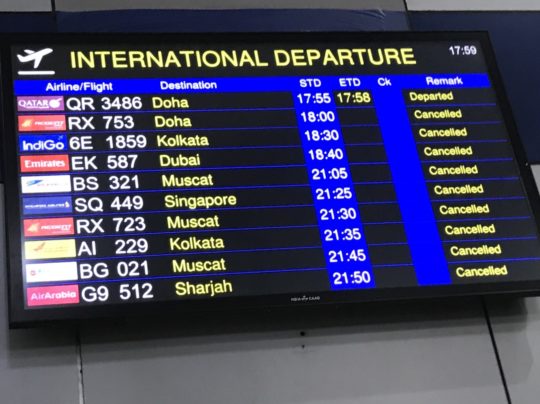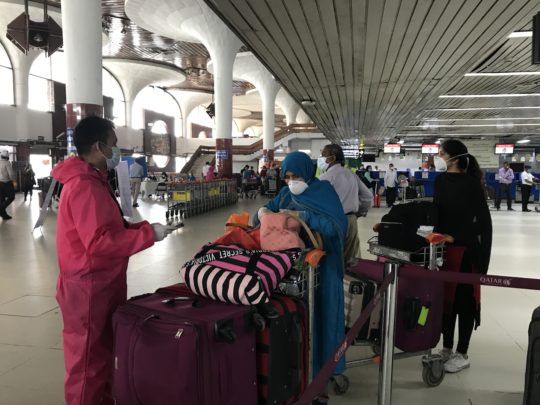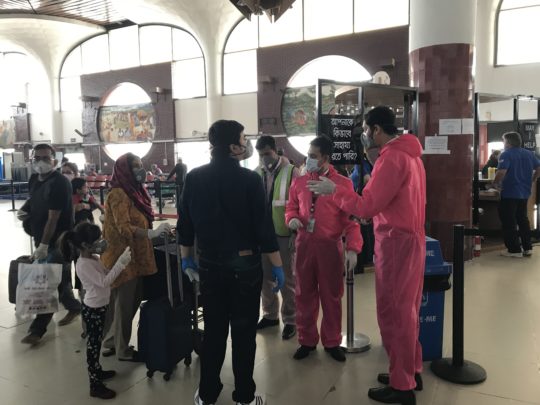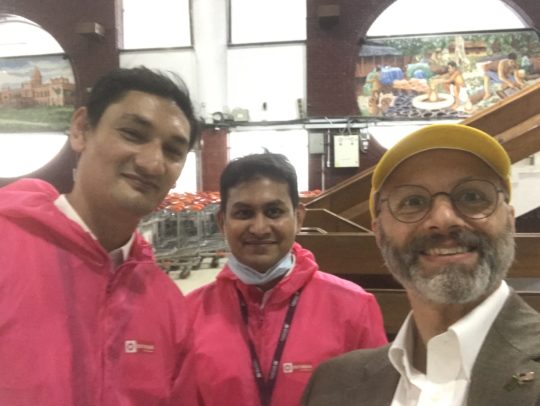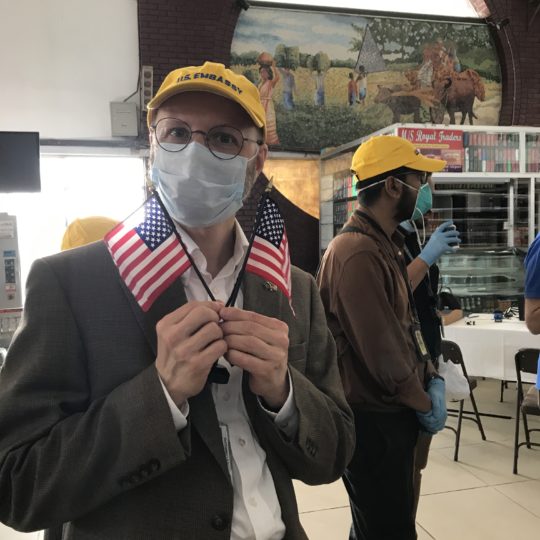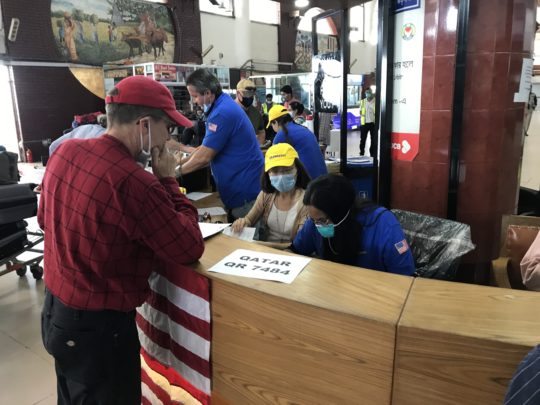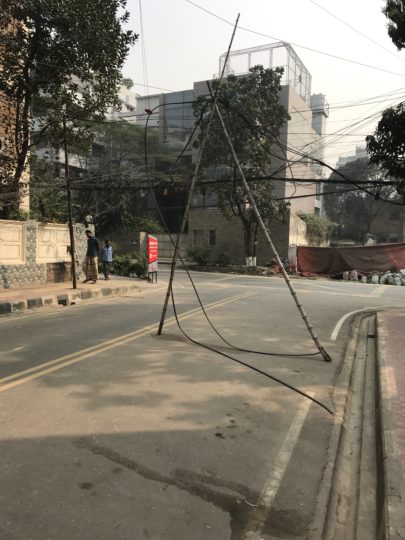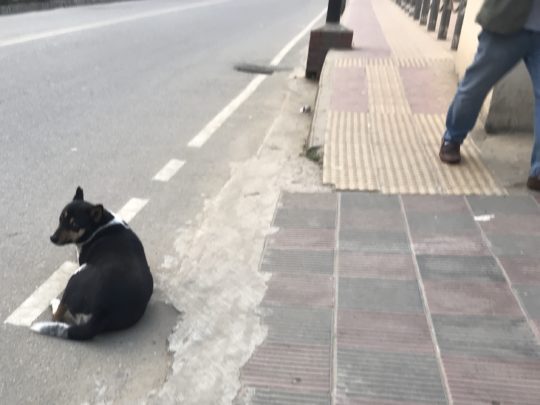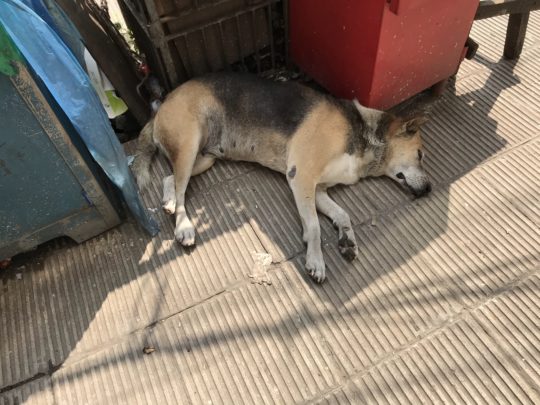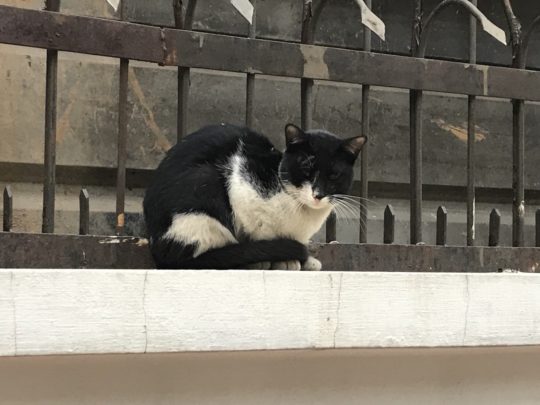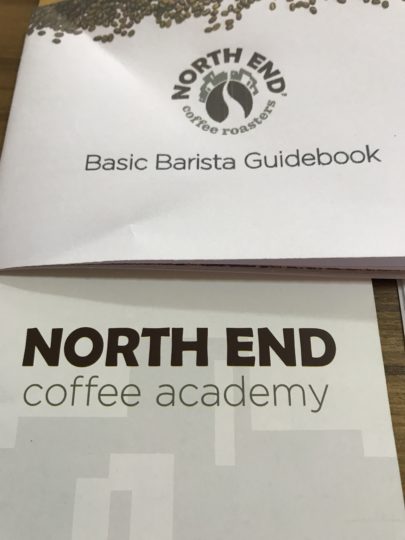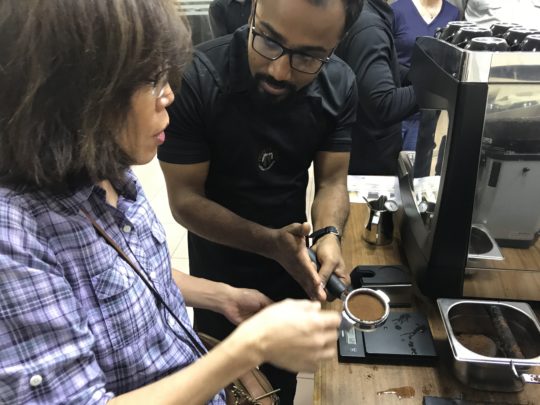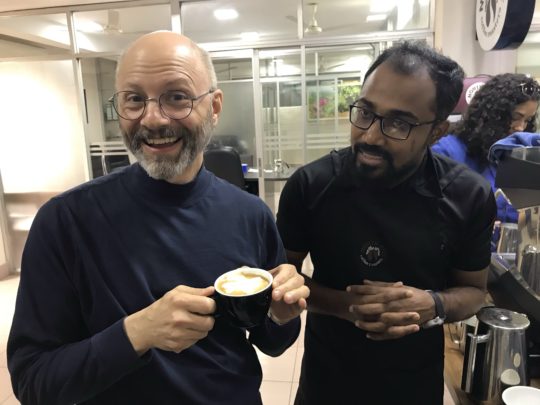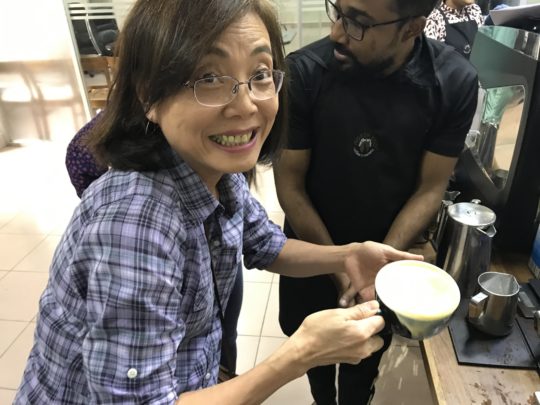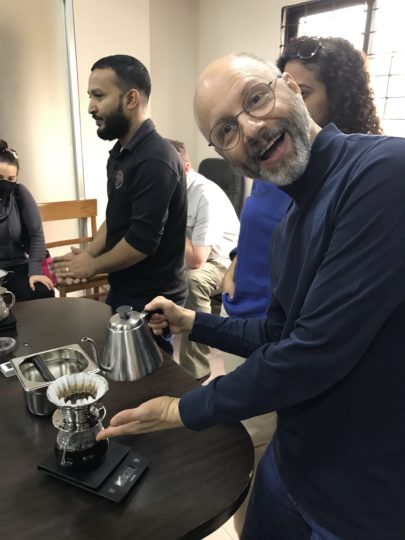I might get used to this, but it won’t happen soon.
The charter flights continue. The State Department is still encouraging American citizens to return to the United States. Here in Dhaka, we are still chartering airplanes to get people home. This week was our third go-round. This time, we told ourselves, it would be smooth. We knew what we were doing this time. We learned from our mistakes. We can prevent problems, anticipate any complications, and it will all run like clockwork.
We developed a new registration system, we made phone calls, answered emails, sent out information. We confirmed people for the flight.
Then the Bangladesh government extended the government shutdown, and declared a curfew. People kept getting sick. The police set up roadblocks to discourage people from going out.
On Game Day, we got (temporarily) locked out of the airport.
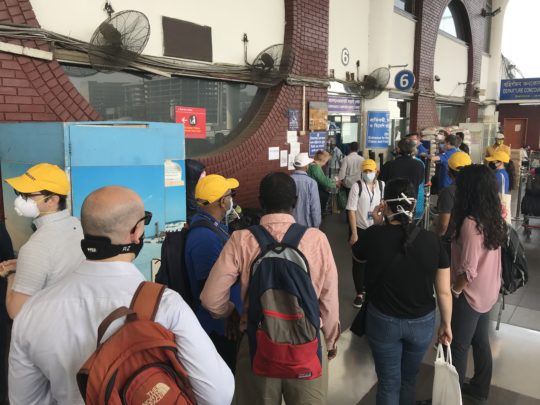
In the airport, I was walking back and forth between two ends of the departure lobby. On one side of the building we checked in confirmed passengers, and on the other side, we checked in the standby passengers. I filled my daily exercise quota just from covering that distance several times.
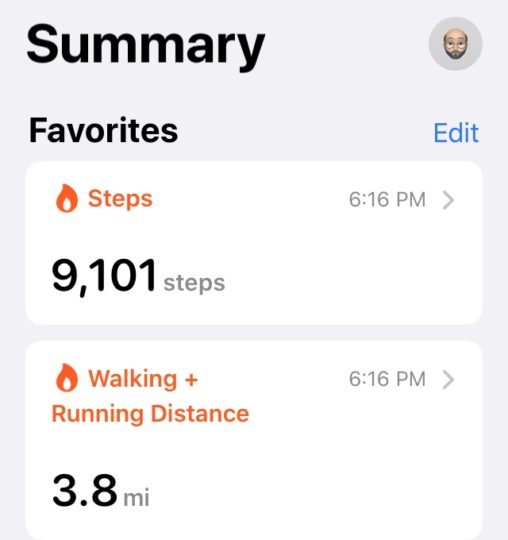
I’m forcing myself to look on the bright side of the day. We created some really amazing consular success stories. One PhD student has been stranded in Bangladesh with his infant daughter. He needed to renew his student visa before he could return to the United States, but his passport was locked up in the offices of our courier company. All businesses are closed by the government shutdown order, including our courier service. We coordinated with the company to open the office especially for the student so that he could collect his passport. Then he brought it to the Embassy, where I issued the visa, our locally-engaged staff printed it, and he whisked off to the airport.
A married couple has some health issues and needed to get to the United States. Problem was, only one of them is a U.S. citizen. So we opened the visa window for the non-citizen spouse, issued a visa, and printed it the morning of the flight.
Some people drove eight-plus hours from remote parts of the country to get to the capital city airport. An hour before the airline’s check-in counter closed, a couple rushed into the airport. They said that police road blocks and checkpoints meant that it took them three hours to get to the airport.
But I also had a huge disappointment. Our email inbox on Game Day had several notifications that people cancelled. Understandable. People are getting sick, others are being warned away by their families in the United States. But a lot of people just didn’t show up for the flight. Instead of a full flight, which I was hoping for, we sent the plane off with 30 empty seats. I received that news after having walked round the airport all morning, then standing at the airline check-in desk for over two hours, reviewing every passport. The news, that we would be so far from full, was hard to take. I was so visibly upset that the DCM (deputy chief of mission, #2 officer in the Embassy), who was monitoring the situation, asked if I needed to take a break.
Even after the flight was fully booked, people had been calling us, begging and crying to get on the flight. We told them: come to the airport, we can out them on standby, maybe, just maybe, we can put you on the plane. Our standby list grew to 92 people. Surely, I felt, we would fill every one of the 358 seats on the plane. But we failed.
Still, we filled to 92% capacity, which set a new record for charter flights that embassies and consulates around the world are organizing. And the silver lining to the large number of no-shows is that every single person who came to the airport got on the plane. That’s not nothing.

This is really meaningful work. The safety of U.S. citizens is our #1 priority. I love working closely with the dedicated officers and LE staff. But after a month of 12- to16-hour days, we are all physically, mentally, and emotionally exhausted.
